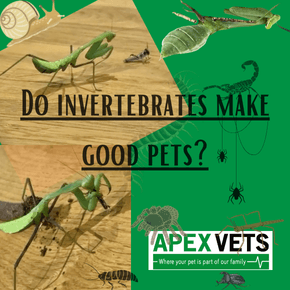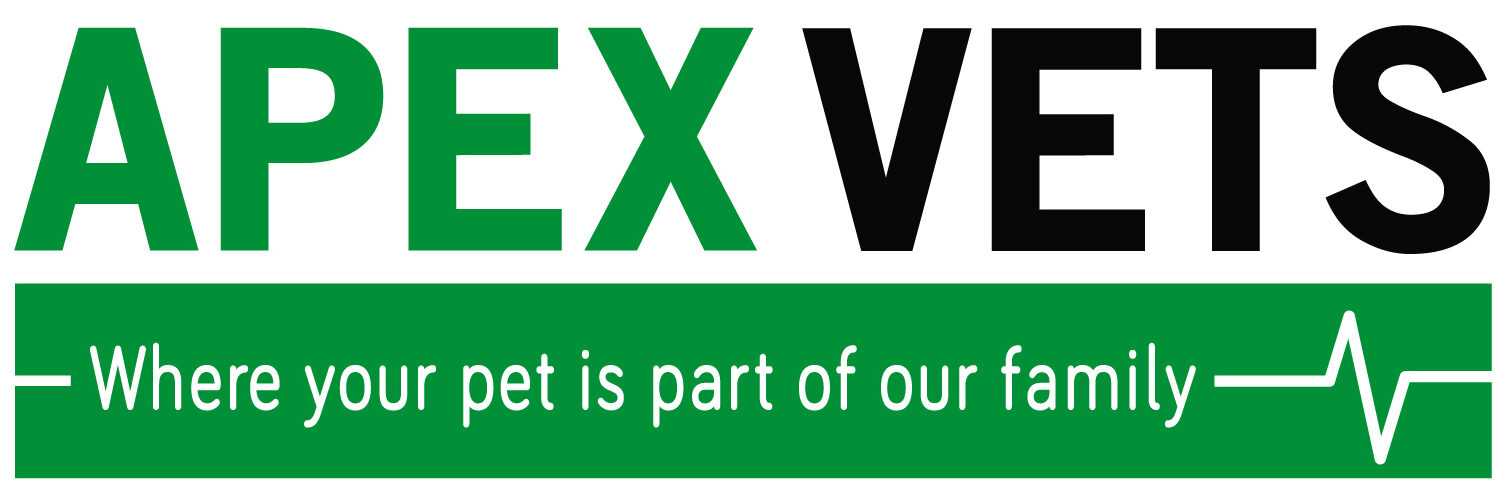Calum Shares Invertebrates That Make Good Pets

Invertebrates may not be for everyone, but they can make fascinating pets. However, they do require specific care.
If you're considering getting one, read these tips from our exotic pet enthusiast and Vet Calum Aitken, at Apex Veterinary Centre first. This is not an exhaustive list, so if your questions aren't answered here, please don't hesitate to contact us for further advice.
Contact us for exotic pet advice
Types of invertebrates that make good pets
From spiders and stick insects to praying mantis and millipedes, there are many invertebrates that can make good pets and, on the upside, they need no training or taming, take up little space, and are relatively low maintenance.
Plus, if you're looking for an exotic pet enthusiast and vet in Denny to provide healthcare for your new pet, look no further - Apex Vets' Calum Aitken is here to help!
Get in touch to book an exotic pet appointment.
8 invertebrates you can keep as pets in the UK
- Tarantulas: These big hairy spiders come in many varieties and are often easy to care for.
- Scorpions: Some scorpion varieties don't require a license and can make intriguing pets. However, they do require specialised care and should not be handled.
- Praying Mantis: Known for their hunting skills, these insects are relatively easy to care for.
- Stick Insects: Low-maintenance and diverse in appearance, they offer a fascinating pet experience but can be fragile.
- Hissing Cockroaches: Surprisingly clean and docile, they're great for beginners as they are easy to handle. Their legs can be quite spikey though.
- Beetles: With various species like stag beetles and rhinoceros beetles, they provide a unique pet opportunity.
- Millipedes: Colourful and low-maintenance, they enjoy decaying plant matter.
- Snails: These land dwellers need a humid environment and fresh vegetables to thrive.
Calum says it's important to choose your invertebrate pet carefully. Some, such as stick insects, are very fragile, whilst others can deliver a bit of a nip. You should be aware too that all tarantulas are venomous and the hairs of some can cause skin irritation. That said, most invertebrates only deliver a bite that is the equivalent of a bee sting to anyone who isn't allergic.
Housing your exotic pet
Housing will differ slightly per species, but a common type of housing for many invertebrates is a vivarium. They can be used to recreate a variety of environments, such as a desert, jungle, or even a fairy garden!
Fun fact: The word "vivarium" comes from Latin and means "place of life".
Calum advises that keeping the enclosure clean is important to protect your pet from parasitic infections and micro-organisms. Ensure uneaten prey is regularly cleared away, along with any other debris. Safety and security are important too, so your pet can't get out and other, larger pets can't get in!
Important considerations:
- Legal requirements: Make sure you are aware of any UK laws or local regulations regarding keeping invertebrates as pets.
- Research: Before getting any invertebrate pet, it's important to research their specific care requirements, including housing, diet, and temperature.
- Handling: Many invertebrates are best observed rather than handled. Excessive handling can stress them and may even be harmful.
- Live food: You'll need to be OK with feeding your pet live food, which will range from worms to flies to crickets and beyond.
If you're considering getting an invertebrate pet and need some help with your choice, why not call our team at Apex Veterinary Centre on 01324 829 989, or contact us by email and we can help you decide which may be the right choice for you.
Contact us for exotic pet advice






